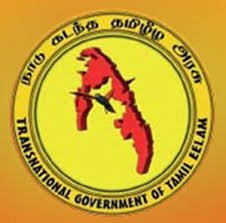
Why I’m supporting TGTE & Separatism through my articles?
Sri Lanka is responsible for genocide against Tamils is a highly sensitive issue, deeply rooted in the country’s civil conflict that lasted from 1983 to 2009. Various human rights organisations, scholars, and international bodies have documented allegations of war crimes and crimes against humanity during this period, particularly during the final stages of the civil war.
The Tamil population, predominantly in the Northern and Eastern provinces, has faced significant violence, displacement, and loss of life. Critics argue that the Sri Lankan government’s military operations aimed at defeating the Tamil Tigers (LTTE) led to disproportionate civilian casualties and targeted actions against Tamil civilians.
On the other hand, the Sri Lankan government has denied allegations of genocide and claims that its actions were necessary to defeat terrorism posed by the LTTE.
International responses have varied, with some calling for accountability and investigations into these allegations, while others have been more supportive of the Sri Lankan government’s narrative. The debate continues, and discussions on this topic are often charged with political and emotional weight.
**Final Stages of the War**: The war culminated in 2009 with a brutal offensive by the Sri Lankan military. The last few months of the war saw heavy fighting in the Northern Province, particularly in areas like Mullaitivu. Reports indicated significant civilian casualties, destruction of hospitals, and limited access to humanitarian aid.
**Allegations of War Crimes**: Various reports, including those from the United Nations, Human Rights Watch, and Amnesty International, have accused the Sri Lankan government of war crimes and potential genocide. Specific allegations include shelling of civilian zones, extrajudicial killings, and widespread torture.
Transitional government of Tamil Eelam may seek separatism for a variety of reasons, often rooted in a combination of political, social, cultural, and economic factors. Here are some common reasons:
1. **Cultural Identity**: A strong sense of distinct cultural, ethnic, or linguistic identity can motivate a group to seek separation in order to preserve and promote their unique heritage and traditions.
2. **Historical Grievances**: Historical injustices, oppression, or marginalisation can fuel feelings of resentment and a desire for independence or autonomy, especially if the group has faced discrimination or exploitation in the past.
3. **Political Representation**: Groups may feel underrepresented or excluded in the political processes of the larger state, leading them to seek self-governance to ensure their interests and voices are heard.
4. **Economic Disparities**: Economic inequality or perceived exploitation by the central government can drive groups to seek separation to gain control over their economic resources and development.
5. **Desire for Self-Determination**: The principle of self-determination, which holds that peoples have the right to determine their own political status, can inspire movements for independence or autonomy.
6. **Conflict and Violence**: Ongoing conflict or violence, particularly if it disproportionately affects a specific group, can lead to calls for separation as a means of achieving safety and security.
7. **Geographical Isolation**: Geographical factors, such as being located in a remote or distinct area, can contribute to a sense of separateness and the desire for autonomy.
8. **Social Cohesion**: Strong social bonds and a sense of community among group members can foster a collective identity that reinforces the desire for separation.
9. **Influence of External Factors**: External influences, such as support from diaspora communities, international organisations, or neighbouring states, can also play a role in encouraging separatist movements.
These reasons often intersect and can vary significantly from one context to another, shaping the specific demands and strategies of separatist groups.






